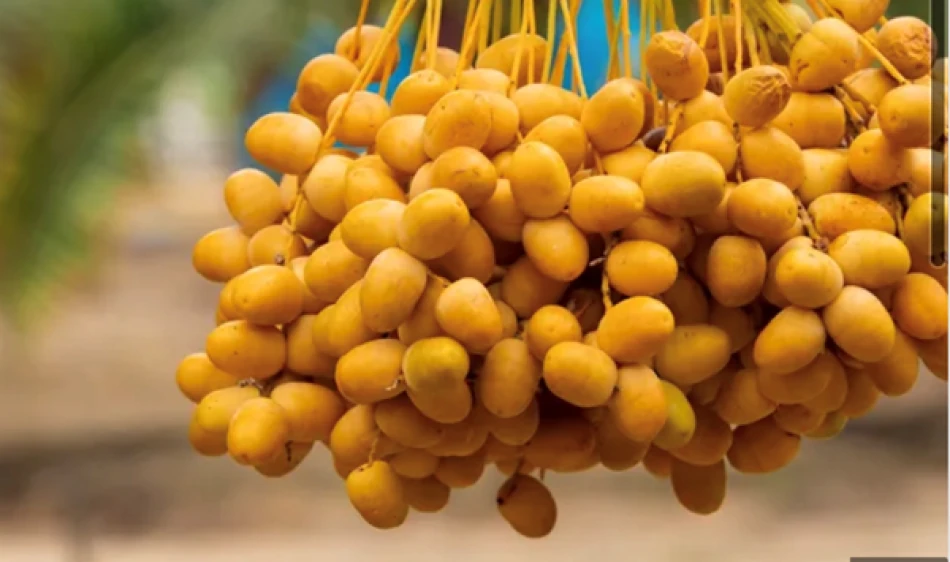
Authoritative Guide to UAE's Finest Date Varieties Unveiled by Abu Dhabi Agriculture & Food Safety Authority
Abu Dhabi Launches Comprehensive Date Variety Guide to Boost Agricultural Self-Sufficiency
Abu Dhabi's Agriculture and Food Safety Authority has released a detailed guide cataloging 61 date palm varieties native to the emirate, marking a strategic push toward agricultural sustainability and food security. The timing coincides with the 21st Liwa Date Festival 2025, positioning the UAE capital as a leader in desert agriculture innovation while preserving traditional farming heritage.
Strategic Agricultural Documentation
The "Date Varieties in Abu Dhabi Emirate" guide represents more than agricultural cataloging—it's a blueprint for optimizing production in one of the world's most challenging growing environments. The comprehensive resource details maturation schedules, production rates, and distinctive characteristics for each variety, alongside specific cultivation recommendations tailored to Abu Dhabi's diverse microclimates.
The guide strategically segments varieties based on environmental adaptability, distinguishing between cultivars suited for arid inland regions and those thriving in humid coastal zones. This precision approach reflects lessons learned from Israel's desert agriculture success and Australia's dry-land farming innovations.
Economic Diversification Through Traditional Agriculture
High-Value Commercial Varieties
The guide spotlights commercially significant varieties including Al-Fard, predominantly cultivated in Al Ain and consumed in both fresh and dried stages, and Al-Dabbas, specifically adapted for the harsh Dhafra region conditions. The early-ripening Al-Naghal variety commands premium prices due to its high economic value and preferred fresh consumption.
This focus on premium varieties mirrors successful agricultural strategies in California's Central Valley and Spain's Andalusia, where specialty crops generate disproportionately high revenues per hectare compared to commodity agriculture.
Food Security Implications
The initiative addresses critical food security concerns as the UAE imports over 80% of its food requirements. By optimizing local date production—a crop naturally suited to the region's climate—Abu Dhabi reduces import dependency while building agricultural expertise transferable to other crops.
The strategy parallels Singapore's "30 by 30" food security initiative, though Abu Dhabi's approach leverages natural climate advantages rather than fighting environmental constraints through technology alone.
Regional Agricultural Leadership
The guide's release during the Liwa Date Festival amplifies Abu Dhabi's positioning as the Gulf's agricultural innovation hub. While Saudi Arabia focuses on large-scale desert farming projects and Qatar emphasizes hydroponic systems, Abu Dhabi's approach balances traditional knowledge with scientific optimization.
The Authority's commitment to making the guide freely available online and distributing it through farmer education programs demonstrates a knowledge-sharing approach that could influence regional agricultural development. This contrasts with proprietary agricultural technologies that limit farmer access and adoption.
Investment and Market Outlook
For agricultural investors and technology companies, Abu Dhabi's systematic approach to crop optimization signals growing opportunities in precision agriculture, specialized irrigation systems, and post-harvest processing equipment. The focus on variety-specific cultivation recommendations creates demand for tailored agricultural inputs and services.
The initiative also positions Abu Dhabi's date industry for premium export markets, potentially competing with established producers like Iran and Iraq by emphasizing quality over quantity. Premium date varieties can command prices 300-500% higher than commodity grades in international markets.
As climate change intensifies agricultural challenges globally, Abu Dhabi's methodical approach to desert agriculture could become a model for arid regions worldwide, creating additional economic opportunities through knowledge export and agricultural consulting services.
Most Viewed News

 Layla Al Mansoori
Layla Al Mansoori






